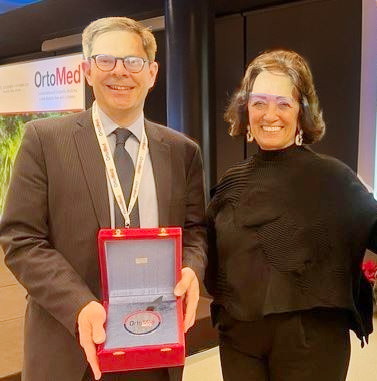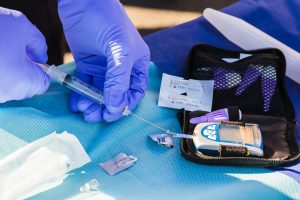[vc_row][vc_column][vc_column_text]Researchers at the University of Southampton’s MRC Lifecourse Epidemiology Unit have led the generation of two new international position papers covering key topics in the field of osteoporosis care and musculoskeletal ageing. Professor Cyrus Cooper (Professor of Rheumatology and Director) Professor Elaine Dennison, Professor Nicholas Harvey and Dr Nicholas Fuggle contributed as part of working groups supported by the European Society for Clinical and Economic Aspects of Osteoporosis, Osteoarthritis and Musculoskeletal Diseases (ESCEO). The two position papers are now published:[/vc_column_text][/vc_column][/vc_row][vc_row][vc_column][vc_column_text]Is there a role for menopausal hormone therapy in the management of postmenopausal osteoporosis? Rozenberg S, Al-Daghri N, Aubertin-Leheudre M, Brandi ML, Cano A, Collins P, Cooper C, Genazzani AR, Hillard T, Kanis JA, Kaufman JM, Lambrinoudaki I, Laslop A, McCloskey E, Palacios S, Prieto-Alhambra D, Reginster JY, Rizzoli R, Rosano G, Trémollieres F, Harvey NC. Osteoporos Int. 2020 Jul 8. doi: 10.1007/s00198-020-05497-8. Online ahead of print.[/vc_column_text][/vc_column][/vc_row][vc_row][vc_column][vc_column_text]The first paper provides a comprehensive synthesis of the evidence-base relating to the use of menopausal hormone therapy (MHT) for the maintenance of musculoskeletal health. The use of MHT has undergone substantial change in recent decades, used widely in the 1990s and then much less since results of the US Women’s Health Initiative (WHI), demonstrated increased risk of adverse cardiovascular outcomes. Extensive reappraisal of the evidence from WHI and other trials has since suggested that the benefit versus risk profile varies by age and time from menopause, and is highly dependent upon individual circumstances. In this position paper, we conclude that:[/vc_column_text][/vc_column][/vc_row][vc_row][vc_column][vc_column_text]
“Overall, MHT may be considered as an option for the maintenance of bone health in recently menopausal women, as an additional benefit in the context of treatment of menopausal symptoms, amongst women who are at low risk of breast cancer, and of cardiovascular, cerebrovascular, venous thromboembolic events, and who do not warrant a specific skeletal therapy such as a bisphosphonate.”
[/vc_column_text][/vc_column][/vc_row][vc_row top_margin=”page_margin_top”][vc_column][vc_column_text]Assessment of Cardiovascular Safety of Anti-Osteoporosis Drugs. Fuggle NR, Cooper C, Harvey NC, Al-Daghri N, Brandi ML, Bruyere O, Cano A, Dennison EM, Diez-Perez A, Kaufman JM, Palacios S, Prieto-Alhambra D, Rozenberg S, Thomas T, Tremollieres F, Rizzoli R, Kanis JA, Reginster JY. Drugs. 2020 Jul 28. doi: 10.1007/s40265-020-01364-2. Online ahead of print.[/vc_column_text][/vc_column][/vc_row][vc_row][vc_column][vc_column_text]The second paper addresses the cardiovascular safety of medications used in the treatment of osteoporosis. This the subject is of great interest, not simply because both cardiovascular disease and osteoporosis are more common in older adults, but also because of potentially interconnected pathologies, mediated by vascular calcification. The article covers the full gamut of anti-osteoporosis medication and particularly addresses the cardiovascular safety of romosozumab, which is a topic of some debate. The key findings are:[/vc_column_text][/vc_column][/vc_row][vc_row][vc_column][vc_column_text]“There are no consistent data to suggest an association between calcium and coronary artery disease and vitamin D supplementation does not appear to be associated with increased cardiac risk.
There is a window of opportunity until 10 years after the menopause in which to use MHT without apparent detriment to cardiovascular disease. SERMs are associated with a significantly incresed risk of VTE and may be associated with fatal stroke. Bisphosphonates cannot be recommended for cardiac benefit, and associations with atrial fibrillation are inconsistent. There is no evidence of adverse cardiac effects with denosumab or PTH analogues. The signal on cardiovascular disease adverse events with romosozumab needs post-market surveillance that will be crucial in confirming cardiovascular safety.”[/vc_column_text][/vc_column][/vc_row][vc_row top_margin=”page_margin_top”][vc_column][vc_column_text]Professor Nicholas Harvey, Professor of Rheumatology and Clinical Epidemiology at the MRC LEU, commented,[/vc_column_text][/vc_column][/vc_row][vc_row][vc_column][vc_column_text]
“These two position papers provide comprehensive evidence reviews and present practical clinically relevant recommendations, which should be of great value to both practising clinicians and researchers in these fields.”
[/vc_column_text][/vc_column][/vc_row][vc_row top_margin=”page_margin_top”][vc_column][vc_column_text]Professor Cyrus Cooper, Professor of Rheumatology and Director, MRC LEU, added[/vc_column_text][/vc_column][/vc_row][vc_row][vc_column][vc_column_text]
“This work should greatly aid understanding of the relevant evidence-bases and demonstrates the huge value of collaboration between experts across the world in determining, and synthesizing, the current state-of-the-art.”
[/vc_column_text][/vc_column][/vc_row][vc_row][vc_column][/vc_column][/vc_row]








